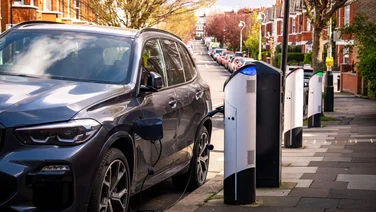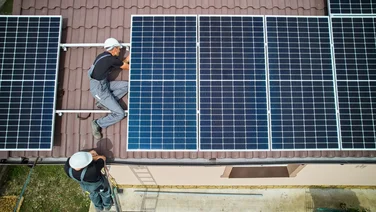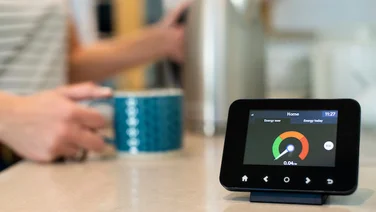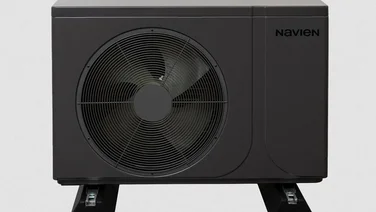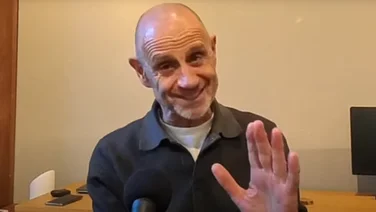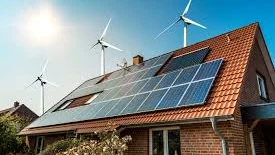- The Myths
- 1. MYTH: Keeping a fan on cools a room
- 2. MYTH: Washing dishes by hand saves more water than using a dishwasher
- 3. MYTH: You can save a ton of energy by avoiding standby and unplugging chargers
- 4. MYTH: Most of your heat is lost through the windows
- 5. MYTH: Turning the thermostat higher will heat your home faster
- 6. MYTH: Keeping all your internal doors open will make your home warm
- 7. MYTH: Closing vents in empty rooms is energy-efficient
- 8. MYTH: Its better to leave the heating on all the time, on a low setting
- 9. MYTH: Switching your lights on and off is worse than just leaving them on
- Summary
✔ Turning your thermostat from 20°C to 18°C could save you £560 per year
✔ You lose 35% of your homes heat through the walls
✔ Leaving your TV on standby has basically no effect on the environment
We all have misconceptions when it comes to our home energy use. Theres no home energy class at school, and trying to talk to your cool teen friends about it wouldnt have gone down well.
So you learn from family, or whoever else you can, and sometimes that means hearing stories with a dubious relationship with reality which isnt enough.
Its crucial to know how best to heat and cool your surroundings, so you can live your best, most temperate life.
So stop painting your radiators black (because it almost certainly wont help), shut the door to stop the heat getting out, and read on as we debunk the nine most pervasive home energy myths of our time.
The Myths

Putting the TV on standby is good; turning it off at the mains is basically pointless
1. MYTH: Keeping a fan on cools a room
It doesnt cool the room; it cools you.
The air feels cold when it hits your skin because its moving faster than normal, but the air temperature itself doesnt change.
This means you should switch off a fan if youre leaving the room, or youll be wasting energy and money for no good reason.
If you want to cool down a room for real, use an air conditioner, which physically removes the heat from a space.
2. MYTH: Washing dishes by hand saves more water than using a dishwasher
Gone are the days of being forced to wash everything you own by hand but are we dooming the planet by wasting water on perpetuating our laziness?
Nope.
As it turns out, there are no longer any environmental downsides to this technological development, because you use more hot water cleaning by hand than by machine.
So its much better for Mother Earth if you put your dirty crockery into the dishwasher, switch it onto an eco-friendly setting, and kick back with a conscience as clean as your plates.
Modern technology truly is a wonder.
3. MYTH: You can save a ton of energy by avoiding standby and unplugging chargers
We understand why this misconception has spread.
After all, it makes intuitive sense. Leaving anything plugged in all year long must require a massive chunk of energy; its just common sense.
Except it doesnt.
Modern-day chargers, whether theyre for mobiles, laptops, or tablets, use a tiny amount of electricity when theyre not charging your devices just 0.438 kilowatt hours (kWh) per year, according to a study by How-To Geek.
This means that by keeping them unplugged, the average person in the UK would save 6.29p per year.
Your oven uses more energy in 20 minutes than your unused charger does in a year and the savings are similarly small when it comes to your TV.
By switching your TV off when youre not watching it, you could save around £0.27 in electricity bills over a year.
So dont waste your time on plugging and unplugging chargers.
If you want to help fight climate change and save the planet while powering your home, focus on making other, more effective changes like using solar panels.
4. MYTH: Most of your heat is lost through the windows
The idea that most of your homes heat is lost through your windows is similar to the notion that you lose the majority of your body heat from your head because theyre both untrue.
Windows and draughts are responsible for 25% of your heat loss, which pales in comparison to the 35% you lose through your walls, according to The Guardian.
Another 25% exits your home through the roof, while the remaining 15% escapes through the floor.
Where you lose heat from your home
So instead of banning anyone you live with from opening the windows, focus on getting your walls insulated.
Thatll stop more heat from escaping, making for a warmer, less expensive, more energy-efficient life.
Want to find out how much it’ll cost you to get double glazed windows? Check out our Double Glazing Costs page.
5. MYTH: Turning the thermostat higher will heat your home faster
Setting an ambitious goal can be good for your productivity for instance, if you aim to clean your whole home in a day, and end up only cleaning the kitchen and bathroom, youve still achieved plenty.
But your thermostat doesnt have this kind of psychology. In fact, for the next few years at least, it doesnt have any kind of mentality.
If you raise the target temperature beyond the number of degrees you actually want, the machine will heat up your home at the same speed; itll just heat up your home for longer.
Turning your thermostat down from 20°C to 18°C can save you up to £560 per year, according to a government-sponsored study and the average price per kWh.
Thats because its trying to reach the level you set for it, even though you never really wanted to sit in 40°C heat.
And once its climbed that mountain and set the air around you on fire, youll inevitably need to use your air conditioner to cool the place down, compounding your initial mistake and using even more unnecessary energy.
Keep it simple: set your thermostat for the temperature you actually want.
6. MYTH: Keeping all your internal doors open will make your home warm
This myth has precisely zero scientific basis.
In reality, each room thats getting heated will get warmer if you shut its doors, allowing the hot air in the space to circulate and then get warm again.
If you leave all the doors open, youll let the heat leave the room and disperse, making it much less effective.
Even if youre heating every room in your home at the same time (which you ought to avoid), you should shut all the doors. Keep the heat in a small area, and youll be golden.
This is nothing. Stop it. Choose the temperature you want
7. MYTH: Closing vents in empty rooms is energy-efficient
This sounds sensible limit the space your air conditioner or heater has to service, and you can reduce the energy you use, right?
Unfortunately, its not that simple.
All youll do by closing your vents is increase the air pressure within the ducts of your heating and cooling system. This pressure can lead to air leaks, which will reduce the lifespan of your unit.
The vents need to vent and the best thing you can do is let them.
8. MYTH: Its better to leave the heating on all the time, on a low setting
For the sake of your bank balance not to mention the Earth itself please dont do this.
There is no point heating rooms youre not in, unless youre some sort of supervillain who wants to slightly speed up the effects of climate change.
Youll use a tremendous, gratuitous amount of energy, and achieve nothing else. If youre worried about some parts of your home being cold, those rooms can handle it.
Instead, switch the heating on in the rooms people are in, and let your heating stop working when possible.
After all, most homes are very talented at holding onto heat, having been built with this need in mind. Trust them to do their thing, and stop wasting money and energy.
9. MYTH: Switching your lights on and off is worse than just leaving them on
The idea that you should leave your heating on constantly is in the same bracket as the idea that turning lights off uses more energy than leaving them on all the time which is also untrue.
It produces a tiny spike of energy when you press a light switch, but this is nothing compared to the sizable environmental benefits associated with turning lights off.
Summary
It can be hard to separate fact from fiction when it comes to the best ways to save energy and money on your heating, lights, and water.
Hopefully, by debunking these myths, weve given you the tools you need to live your best home energy life.
So go, fly like the wind, and put these tips into action youll be better off in no time.

